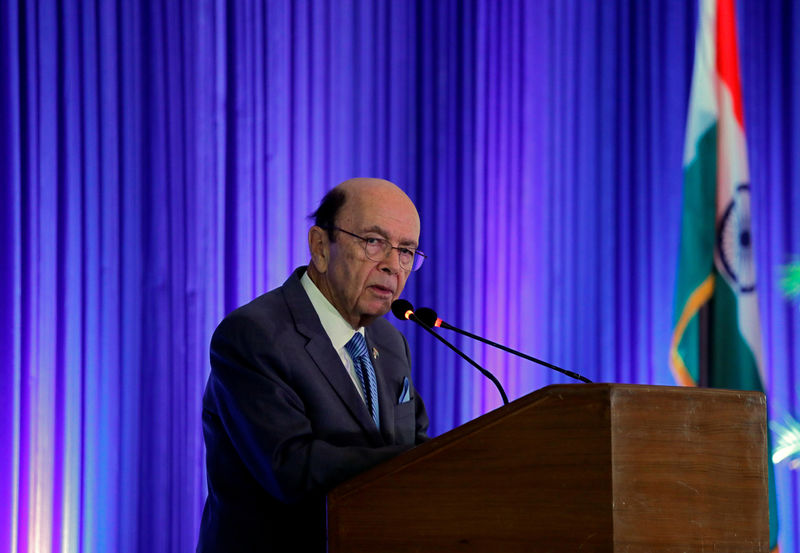By Neha Dasgupta
NEW DELHI (Reuters) - U.S. Commerce Secretary Wilbur Ross will be holding talks with Indian leaders this week and three sources in government and industry in New Delhi said there were renewed expectations of a trade deal on farm goods and pharmaceuticals.
The two countries have been locked in trade disputes for months and were expected to announce a limited deal during Indian Prime Minister Narendra Modi's trip to the United States last month.
But no deal was sealed and an Indian government source said negotiators were trying to tie loose ends related to some farm products and generic drugs.
"The aim is to reach an abridged version of a deal that is reciprocal in value terms even though volumes may be small," the source said.
India's trade ministry did not respond to a request for comment. The U.S. Embassy in New Delhi referred questions on trade to the United States Trade Representative.
The USTR did not immediately reply to a Reuters email seeking comments.
The deal under discussion includes lowering some tariffs on U.S. farm produce while giving Indian pharmaceuticals faster approvals to enter the U.S. market.
India dominates the world’s generic drugs market and the United States is among its top importers.
Ross is expected to meet his Indian counterpart Piyush Goyal on Thursday.
Despite close strategic ties, U.S.-India trade relations have been fraught. U.S. President Donald Trump has repeatedly complained about India's high tariff rates, including a 50% tariff on Harley-Davidson (N:HOG) motorcycles.
The United States has also taken issue with India's new investment rules on e-commerce that limit how companies like Amazon.com Inc (O:AMZN) and Walmart-backed Flipkart can do business in a rapidly growing online market set to touch $200 billion by 2027.
On Monday, India blocked a request from the United States at the World Trade Organization for setting up a panel to rule on India's decision to impose additional duties on certain U.S. products, a WTO official said in Geneva.
In June, the United States ended duty-free access for about $5.7 billion worth of Indian exports under its Generalized System of Preferences (GSP) program, of which India was the largest beneficiary. New Delhi responded with higher retaliatory tariffs on 28 U.S. products, including almonds, apples and walnuts.

"The United States will not permit its businesses, farmers, and workers to be targeted in this WTO-inconsistent way," according to a statement by the U.S. in Geneva, seen by Reuters.